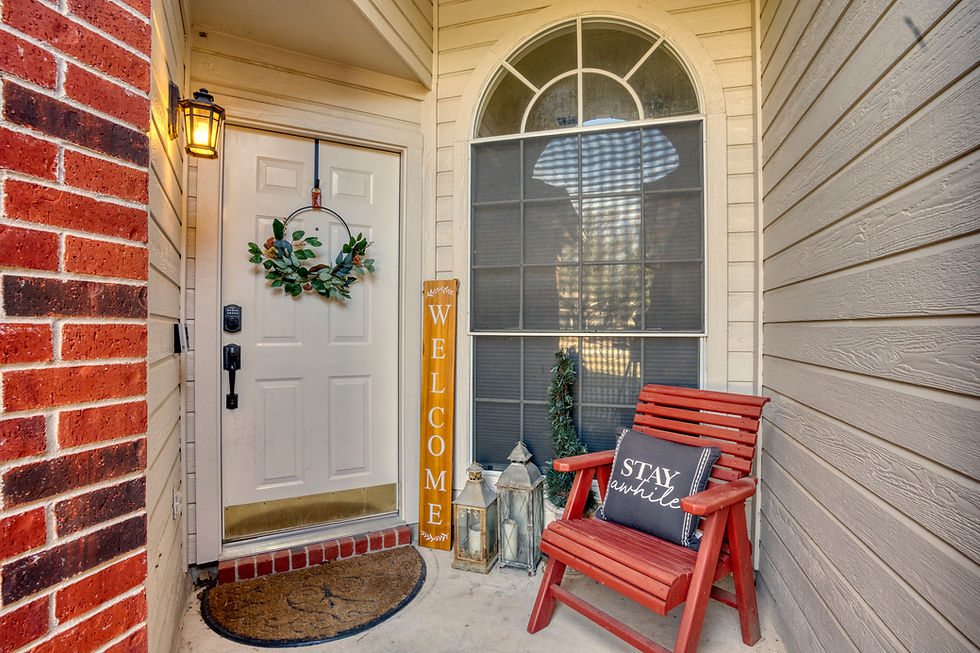How Many Second Homes Can You Own?
- Serita Enney
- Feb 14, 2025
- 4 min read
If “Just one house isn't enough” has ever crossed your mind, welcome aboard! Owning more than one home is not just the prerogative of the super-rich; it is a legitimate and most often lucrative strategy for any real estate investor trying to build on his or her portfolio. Whether you're dreaming of owning a waterside cottage, a cutting-edge downtown skyrise, or hosting weary travelers at your Austin Airbnb, the good news is there are no legal restrictions on the number of second homes you wish to go for. So then, before you buy house after house as if they are your best Pokémon cards: here's a breakdown of everything you require.

The Legal Side: No Limits, Just Logistics
In most parts comprising jurisdictions, there is no letter of the law saying, "An individual MUST own one home only." If you can afford it, have the bank or lending institution give you the green light, or merely just have it assessed because of laws governing ownership in that region, this may constitute an illegal contract and thus be pursued in a court of law. However, in addition to the law, tax regulations, financial aspects, and zoning regulations could all work against you. That's why you may technically own as many as five, ten, or twenty homes; actually, handling and managing those homes if they were rented out (especially Airbnb) has yet to be seen.
Tax Implications: The More You Own, the More You Owe (Probably)
It is noteworthy to mention that owning several properties can have tax implications; the implication of this is that tax calculations will differ with different factors applied in other situations.
1. Primary Residence vs. Second Home – Your first home likely qualifies for tax benefits, such as mortgage interest deductions. Second homes? Not so much.
2. Rental Income – Planning to turn your second home into an Airbnb hotspot? The IRS (or your local tax authority) will want a cut of those profits.
3. Capital Gains Taxes – If you decide to sell one of your properties, you might face capital gains taxes—unless you’ve lived in it long enough to qualify for exemptions.
4. Property Taxes – Each home you own comes with its own set of property tax obligations, and these vary by location.
To all of those involved in Austin Airbnb management, it's critical to understand how rental income is taxed and whether your properties qualify for deductions that can offset some of your costs.
Financial Considerations: Can You Afford the Multi-Home Lifestyle?
Before you start buying homes like they're on clearance, consider these financial factors:
• Mortgages & Lending Requirements – It is not generally certain that the banks would agree to give out a second loan. The borrower's income, debt-to-income ratio, and overall financial stability are highly scrutinized.
• Insurance Costs – Second homes typically come with higher insurance costs, especially if they’re used for short-term rentals like Airbnb.
• Maintenance & Repairs – A second home means double the maintenance expenses. If your properties are spread out geographically, managing them can be a logistical headache.
• Property Management Fees – If you’re renting out your properties through Austin Airbnb management, you may need a property management service, which typically takes a percentage of rental income.
Can You Own an Unlimited Number of Homes?
Legally? Yes. Practically? Not so fast. Here’s why:
• Lenders May Limit You – Securing a mortgage for a first home can seem simple when considering financing for a 2nd and 3rd home. More stringent lending restrictions for additional properties are likely to be exercised by banks.
• Local Regulations Might Apply – There may be certain restrictions imposed in some localities on short-term renting. If extending your operations to Airbnb management in Austin is set as the objective, it is better first to ascertain the local statutes.
• Managing Multiple Properties Takes Time – Unless you have a dedicated property manager, handling multiple properties (especially rentals) can be overwhelming.
Why Airbnb Hosts Should Care About This
If you’re thinking about scooping up multiple properties for short-term rentals, here’s what to keep in mind:
• Diversify Your Locations – Don’t put all your eggs in one real estate basket. Different cities have different peak seasons and regulations.
• Cash Flow is Key – Just because a property has high potential for rental income doesn’t mean it’s profitable. Factor in expenses before purchasing.
• Know Local Laws – Many cities, including Austin, have restrictions on short-term rentals. Keep up with regulations to avoid legal issues.
Buy Smart, Manage Smarter

Options for investment these days are many, and owning an additional home can become one if good. Understanding the purpose of purchase—whether the property is for enjoying personally, for a long-term lease, or just to include it in your Austin Airbnb management business—is a clash of inclinations. Proper examination of the collection of financial elements creates a prudent move. With the exclusion of legal bounds, there are considerations to step into practicality-plus-financial constraints.
If you think about buying multiple homes, make sure that you are aware of the many possible tax consequences of such an endeavor, the problems regarding financing, and various other management issues connected to owning multiple homes. For those contemplating Airbnb property management in Austin, feel free to call us.




Comments